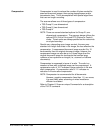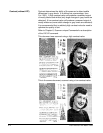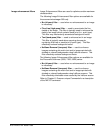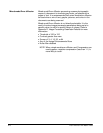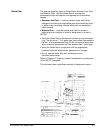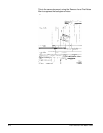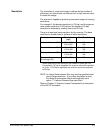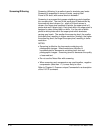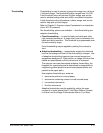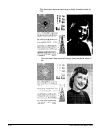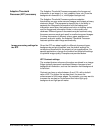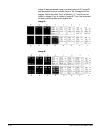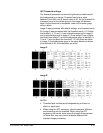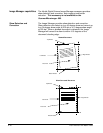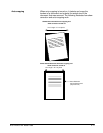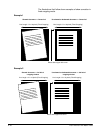
A-61122/A-61124 March 1999 E-11
Thresholding
Thresholding is used to convert a gray scale image into a bi-tonal
(1 bit/pixel) image. The thresholding value ranges from 0 to 255.
A low threshold value will produce a lighter image, and can be
used to subdue backgrounds and subtle, unneeded information.
A high threshold value will produce a darker image, and can be
used to help pick up faint images.
Refer to Chapter 6
, Scanner-unique Commands
for a description
of the JX/Y/Z command.
Two thresholding options are available — fixed thresholding and
adaptive thresholding.
• Fixed thresholding — is used for black-and-white and other
high-contrast documents. A single level is set to determine the
black-and-white transition. This threshold is programmable over
the entire density range.
Fixed thresholding may be applied by setting the contrast to
zero.
•
• •
• Adaptive thresholding — automatically adjusts the threshold
level as the background level of the document(s) changes. Use
of adaptive thresholding improves low contrast images and
suppresses background. Edges within an image and other fine
details are emphasized as the contrast level is increased.
The scanner uses two-dimensional adaptive thresholding; the
threshold for a particular pixel is determined by comparison to
neighboring pixels (pixels that are located perpendicular and
parallel to the paper path).
Use adaptive thresholding to enhance:
◊ documents printed on colored paper
◊ documents containing colored or multi-colored areas
◊ low contrast documents
◊ fine-line documents
Adaptive thresholding may be applied by setting the scan
contrast to a value greater than 0, the Dither Pattern (Screen)
to 2-level, and the Image Enhancement filter to 0 (no filter).



